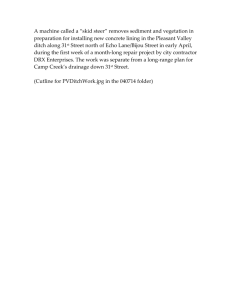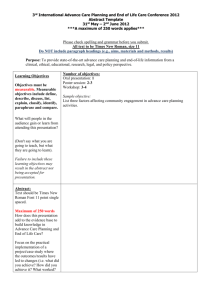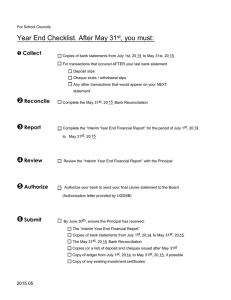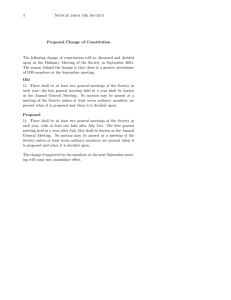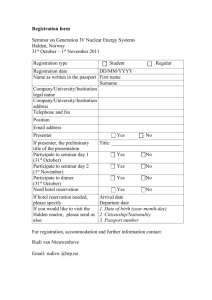(c) crown copyright Catalogue Reference:CAB/24/158 Image Reference:0004
advertisement
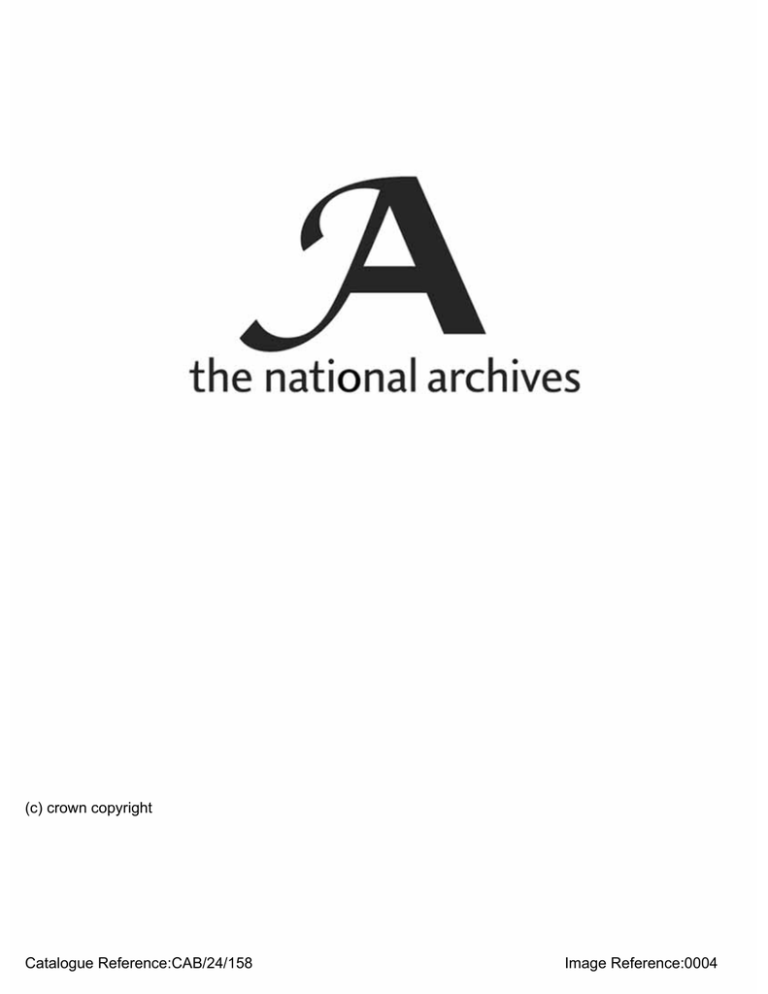
(c) crown copyright Catalogue Reference:CAB/24/158 Image Reference:0004 [ TJiis^Document is the Property of His Britannic Majesty's Government, and should be returned to the Foreign Office if not required for official use. SWITZSHLAiSID POLITICAL Decode. Lord Curzon, (Lausanne). January 31st, 1923. No. 252. D. 6.10.p,m. January 31st, 1923. R. 7,'lO.p.m. January 31st. 1923. (H). oOo MOST URGENT. I commenced meeting this morning by speech of some length introducing treaty, explaining i t s general character and object and Indicating immense concessions which have been made to the Turks in respect of subjects dealt with in my commission. Text has been telegraphed to B r i t i s h press. Garronl followed by expounding quite f a i r l y j u d i c i a l provisions of t r e a t y . Bompard then ex­ plained f i n a n c i a l concessions and drew an impas­ sloned picture of Turkey's perfidy i n entering the war and her treachery to France. A l l three speeches concluded with appeal to Ismet to accept t r e a t y and were based on assumption that treaty I s our l a s t word, I then resumed the chair in order to hear speeches of remaining delegations. American delegate joined in general appeal in a somewhat ln­ volved and nebulous oration ending with declaration that refusal of Turkey to sign would be an lrrepar­ able disaster to herself,,. Japanese, Roumanian, and Serbian delegates then spoke shortly in similar sense. Ismet Pasha replied r e p l i e d with a brief declaration taking note of what had been said, complaining of novelty of certain demands made in t r e a t y , and concluding with request for. eight days delay before giving official reply of Turkish delegation, this period to be consumed in p r i v a t e negotiations, at end of which commissions were t o re-assemble to hear r e ­ sults or. as i s more probable t o resume t h e i r labours. Cabinet w i l l observe that this was p r e c i s e l y the demand forshadowed in my telegram No. 251 of yesterday. I then adjourned conference f o r ten minutes to admit of my delivering reply on behalf of the A l l i e s . [This Document is the Property of His Britannic Majesty's Government, and should be . - fj returned to the Foreign Office if not required for official use.] Decypnef; No. II. 6,55.p,m. January 31st, 1923, R. 7.50.p.m. January 31st, 1923. 252. oOo J5£ lilGSNT. Retirement of French and I t a l i a n delegates with fifty minutes and was scene of v i o l e n t discord and even recrimination. Bompard and Garroni, i n the s p i r i t of t h e i r private conversations of yesterday, r e ­ pudiated previous agreement with me declaring that Ismet'8 request was e n t i r e l y reasonable and could not be refused without discourtesy announced t h e i r intention to stay on here and conduct proposed 'con­ versations and said that i f I refused that I should be responsible f o r breaking up conference and wreck­ ins t r e a t y . I declined to recede from my main position pointing out complete t e r g i v e r s a t i o n of my colleagues in which I declined to participate and which I threatened to expose, i n s i s t i n g that Ismet s 1 terms meant re-opening whole case which we had un­ animously declared to be closed, and i f suggested conversations were to f a i l , r e v i v a l of conference a week hence. I refused either to agree to t h i s or to leave any member of B r i t i s h delegation (?gr, omit.) me or to allow any resumption of public debates Q 'i f 0 Lord Curzon. (Lausanne). January 31st, 1923. our own to an adjoining chamber lasted for . j debates. Utmost that I would concede, and that with a reluctance that I cannot exaggerate, was to post­ pone my departure u n t i l Saturday, or at the l a t e s t Sunday night, in order that Ismet, who had already had treaty In his possession for three days and knows every a r t i c l e in i t by heart might have his stipulated week f o r consideration and private discussion before giving his f i n a l reply,, I stated my intention to make t h i s announcement to conference forthwith on my own r e s p o n s i b i l i t y whether my colleagues agreed or not and from i t I declared my i n a b i l i t y to recede. Upon our return to conference chamber I accordingly announced that I would out of compliment to Ismet Pasha and Turks consent to postpone my departure u n t i l Sunday night at l a t e s t and that I was at his disposal In the interim. Ismet r e p l i e d that he would-do h i s best to accommodate me. Part I I I followso [This Document is the Property of His Britannic Majesty's Government, and should be returned to the Foreign Office if not required for official use.] m Decypher. $ Q0 m Lord Curzon. (Lausanne). January 31st, 1923. No. D. 7.55.p.ra, January 31st, 1923. R. 8.30.p.m, January 31st, 1923, 252. 0O0 Above denouement i s regretted by no one more than myself but in view of president of the Council's treacherous declaration which I had Just received of his intention to conclude a separate treaty with Turks and of Garroni s obvious willingness to take ! same course with consequence that r e s p o n s i b i l i t y f o r rupture would be thrown exclusively upon me and that I should be represented as throwing away peace f o r a matter of three days, I f e l t I had no a l t e r n a t i v e , I have now written to Ismet asking that conversations for which he begged may begin without delay. Inas­ rauch as secret telegrams received this morning confirm forecast contained in my telegram No a 251 of yesterday and show that Ismet not only has authority but means to sign, I beg that instructions to General Harington con-, tained in your telegram No. 155 just received be not sent for the present and that French and I t a l i a n govern­ ments be not warned as proposed. I t i s to my mind clear that Turks do not mean f i g h t i n g and must have a treaty, and that enemies whom I have to contend with and defeat are not at Angora but at Paris and Home. I am reporting in another telegram about president president of the Council's attitude Out in the mean­ time I ask f o r four days additional law which w i l l result, i t i s true, either in a treaty or in rupture but more probably former, while i f there i s rupture i t w i l l be in a wider f i e l d than the Near East. Cabinet have doubtless observed r i s i n g t i d e in French press against Poincar6's pusillanimity in which he finds a f a i t h f u l adherent in M. Bompara. (Ends),
